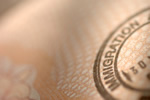How to access free state healthcare in Italy

How to access free state healthcare in Italy
Relocating to Italy may be something of an adventure as regards negotiating its laid-back bureaucracy and learning its language, but the country’s excellent healthcare system is straightforward compared with many other expatriate hubs. The Servizio Sanitario Nazionare (SSN), Italy’s regionally-organised health service, is similar to the UK’s National Health Service in that it offers both citizens and foreigners on a permit to stay a choice of low cost or entirely free medical and surgical options. It’s funded via regional VAT and national income tax and gives good standards of care across the board.
New arrivals from overseas will need to visit their local health authority’s administrative offices in order to register their full details. Documentation required includes a valid ID document, a letter from their employer showing the start date of employment, their tax code, INPS declaration and residence permit. If everything is in order, a national health number and health card will be issued and should be shown on visits to doctors or other healthcare providers.
Even although there’s no charge for public healthcare, many expats either opt for private health insurance or have it provided as part of the relocation package as it gives more choice as regards specialists and private hospitals as well as ensuring faster treatment where necessary. As regards finding a local doctor who speaks English, the best way forward is to check your embassy’s website for a list of family doctors in your area.
Surgery hours vary, with most being open Monday through Friday for appointments, usually arranged on a first-come, first-served basis. Emergency care is a right and is available free to everyone, whether they have state insurance or none. All hospitals have 24/7, 365-day emergency rooms, and patients are treated based on their immediate conditions, meaning those with less severe symptoms may need to wait for attention.
Specialist care is provided at public hospitals, with a small charge for specialist examinations levied on those without an exemption. Pharmacies are easily found, with prescription medicines either free or provided for a small charge, and each town has several pharmacies which stay open on a 24/7 basis.
Related Stories:
- Tips on a trouble-free relocation as an expat overseas - July 20, 2020
- Real estate prices ease up in Prague’s outskirts and surrounding villages - July 15, 2020
- Tips for newly-arrived expats on dealing with Japan’s healthcare system - July 9, 2020
- Long term expat residency is trouble free in the Philippines - June 29, 2020
- Second passports now accessory of choice for wealthy expats - June 24, 2020
- Vietnam beats other SEA states as an expat career hub - June 8, 2020
- Expat arrivals in Germany confused over dual healthcare insurance - June 3, 2020
- Thailand expat community devastated by new entry requirements - May 26, 2020
- Is the pandemic the end of the road for expat freelancers? - May 22, 2020
- Predictions for Prague’s expat real estate market - May 7, 2020
Latest News:
- Tips on a trouble-free relocation as an expat overseas - July 20, 2020
- Expats find peace in the covid-19 refuge of Dahab town - July 20, 2020
- Is Kuwaitization the unintended result of the oil price crash? - July 20, 2020
- Expats unhappy abut changes to Korean points-based visa system - July 17, 2020
- Chiang Mai and Bangkok no longer bargain locations for expats - July 17, 2020
- Expats in Malaysia still banned from overseas travel - July 17, 2020
- Vietnam welcomes expats to its safe, affordable lifestyle - July 16, 2020
- Asian tiger economies reach out to expats in Hong Kong - July 16, 2020
- HSBC Asia to cut back on internal expat relocations - July 16, 2020
- Tips on integrating for newly-arrived expats - July 15, 2020


